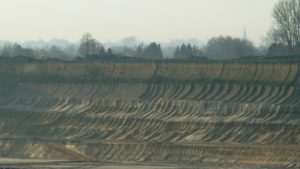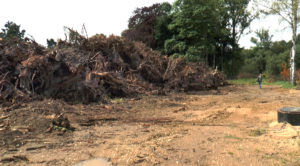.
„If intelligent capitalism recognizes all this, we may be sure that it is not in order to prepare for its own suicide. Rather, it is in order to prepare itself to fight on new fronts, with new weapons and new economic goals.“
André Gorz, Ecology as Politics, 1980. First published as Écologie et Politique, 1975
.
.


 What does ‘utilising nature’ mean? What’s behind the call for climate justice? Why don’t the climate agreements achieve the demanded reductions? Why does fossil fuel energy exploration expand? How is resistance organised and what does the struggle between corporation, the state and forest and mine occupiers express?
What does ‘utilising nature’ mean? What’s behind the call for climate justice? Why don’t the climate agreements achieve the demanded reductions? Why does fossil fuel energy exploration expand? How is resistance organised and what does the struggle between corporation, the state and forest and mine occupiers express?